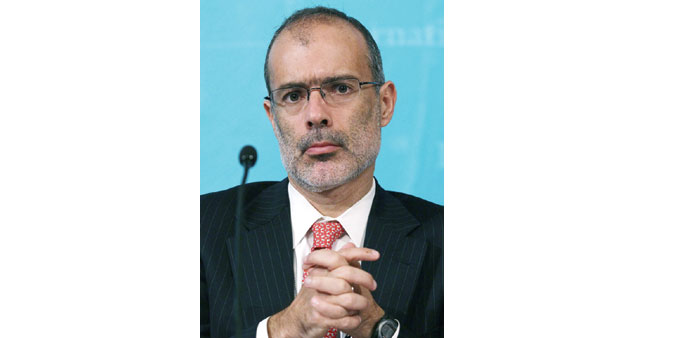Reuters/Santiago
Maintaining healthy public finances is a “crucial commitment,” said Chile’s finance minister in an interview published in the local media yesterday, his first since taking over the role two weeks ago.
Rodrigo Valdes did not say whether the left-wing coalition government would stick to its stated goal of wiping out the structural budget deficit by 2018, saying only: “We will advise on the fiscal framework when we have more information, but there is our crucial commitment, which is keeping public finances healthy.”
Achieving a structural balance in the economy of the top copper exporter by the end of her four-year term was one of President Michelle Bachelet’s pledges when she took power last year. But a sharp fall in the copper price has raised questions over the viability of the goal, given the government has also promised to splash out on reforms including an overhaul of the education system.
Valdes’ appointment earlier this month was welcomed by the market, with the 48-year-old former Barclays economist and member of the center-left PPD party seen as an orthodox and safe pair of hands, with both public and private sector experience.
In a cautious interview with newspaper El Mercurio, Valdes gave little away, but underlined his commitment to Bachelet’s reforms, and ruled out any changes being made to a tax reform that was passed last year.
The new tax regime has been heavily criticised by some members of the business community and strained relations with the government, one factor behind the cabinet reshuffle which led Valdes to replace former finance minister Alberto Arenas.
“We have a tax reform already on the statute books and we have to concern ourselves with making sure it is implemented well,” said Valdes in the interview.
The government would also continue to push for a labour reform bill, currently in Congress, to “level the playing field in a very fundamental way, in terms of giving power to workers,” he said.
The labour reform has also been criticised by businesses, which in particular are worried about a provision that will ban the replacement of workers on strike.
That provision would stay, said Valdes, although without giving examples he said exceptions could be made to ensure minimum services and the prevention of “dramatic economic damage to third parties”.

